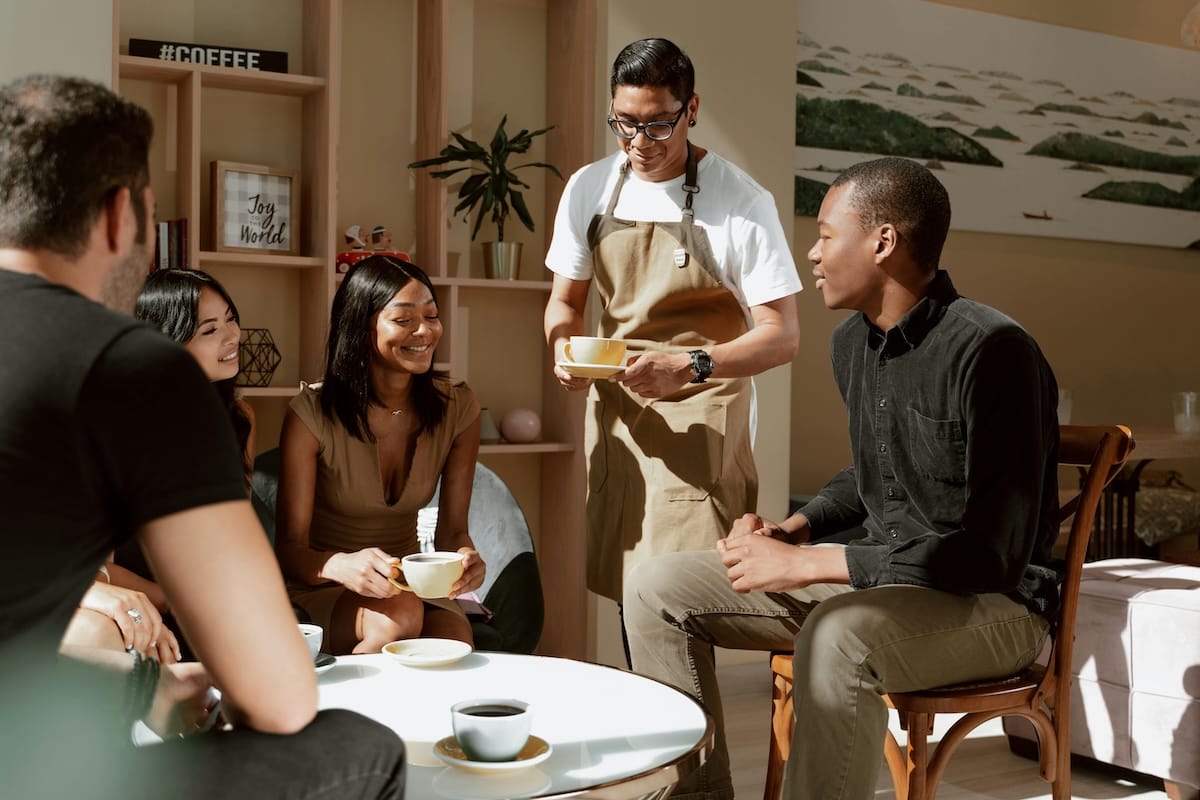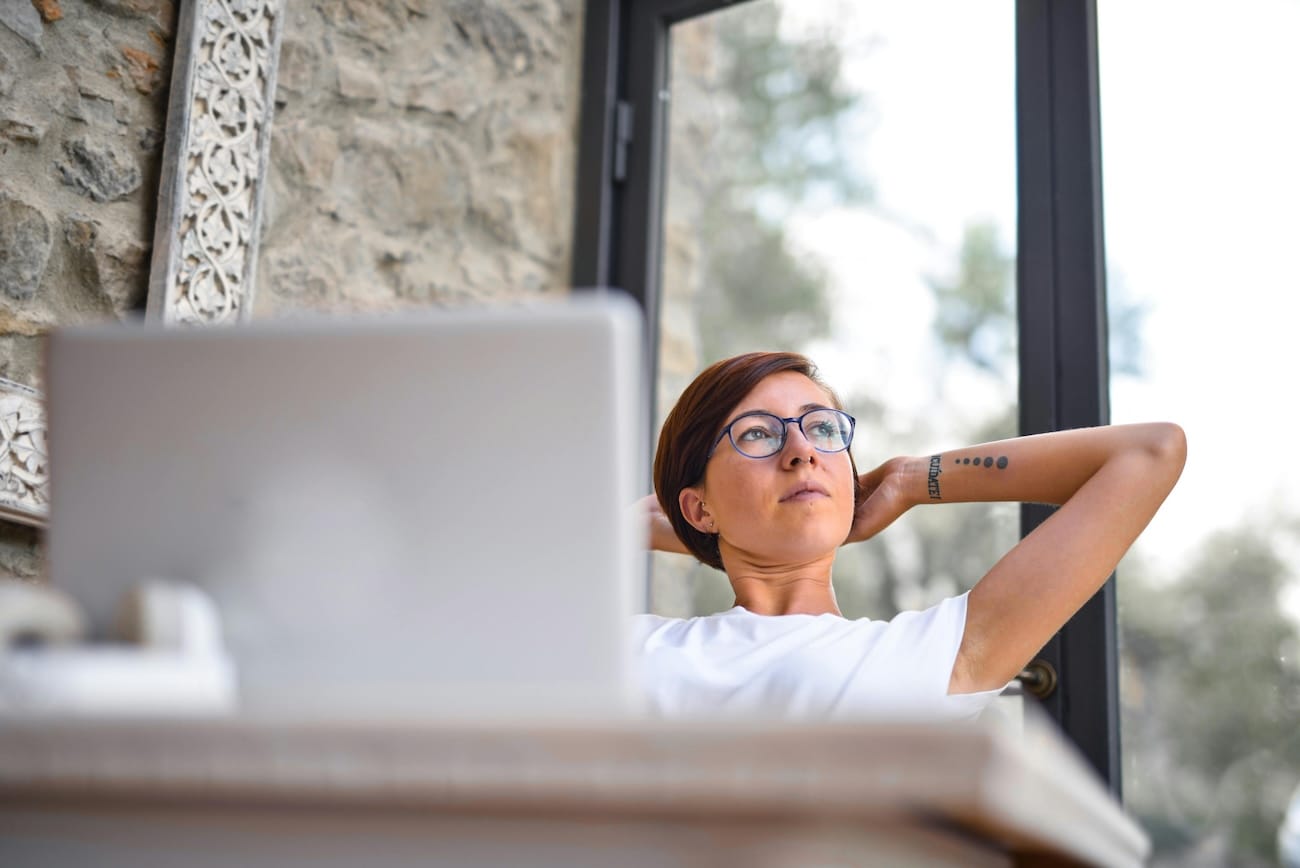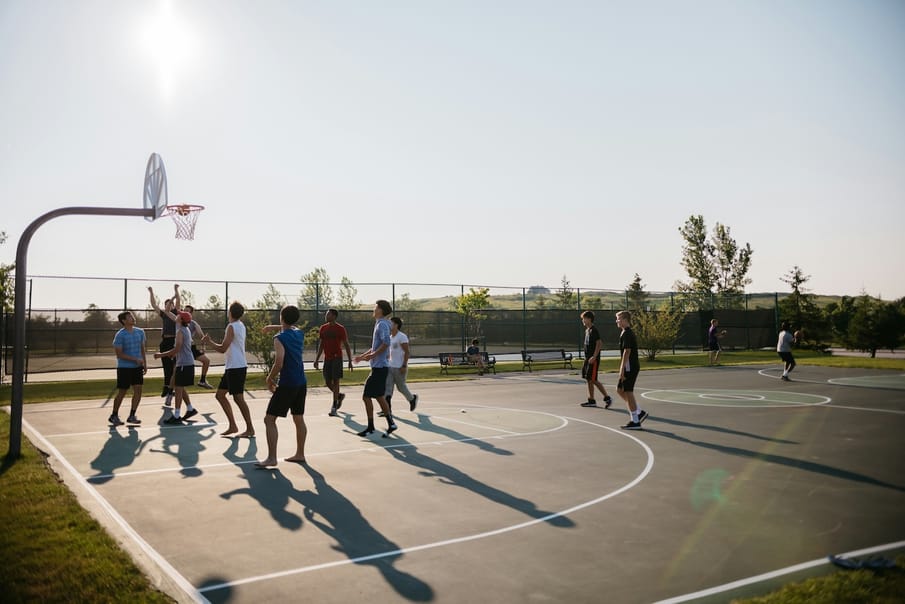Life shouldn’t just revolve around home and work. You need to find your special ‘third place’ to reap the wellbeing benefits of feeling supported, connected, and encouraged
What does a typical day look like for you? For lots of people across the globe the day follows a predictable pattern: get up, leave home, go to work, come home again, go to bed.
Perhaps life looked a little differently pre-pandemic. Rather than leaving work and going straight home, maybe you regularly met up with friends at a late-night café. Perhaps there was an exercise class that you religiously attended before your working day began. Or you wouldn’t let a week go by without excitedly dropping into your local book club.
But, post-pandemic, your social routine has never really recovered. Now you find yourself navigating between work and home and back again. Sounds like you need a third place.
A change of scenery
Defined in 1982 by American sociologists Ramon Oldenburg and Dennis Brissett, a third place is simply a public place outside of your home (your first place) and your place of work (your second place) where you can gather and interact with others.
Here, you can fall into conversation with a stranger, catch up with a casual acquaintance, reconnect with an old friend, or simply feel comforted by having people around you.
You might have lost these haunts post-pandemic, or perhaps you never really had a third place to begin with. But here’s the thing: third places are vital for our wellbeing.
“Humans are social creatures. We love to live in communities and create a family, and we like to work in teams or with colleagues around. Put simply, being sociable is in our DNA,” explains Kelly Weekers, a psychologist and best-selling author of Happy Life 365, The Power of Choice, and Choosing Me.
Sure, sometimes we like to be left well alone, perhaps opting to curl up with a good book or even just our phones, but we all need genuine, non-digital connections to feel grounded and secure.
Kelly says third places offer us exactly that. “In a world where loneliness is at an all-time high, it’s important to find yourself a place that supports human connection and community.”
It’s easy to assume that we can replicate this feeling of connection and community by simply going online. The digital world has become a kind of virtual third place for many of us, but social media is no match for the bustling atmosphere of your neighbourhood café, or the camaraderie at your local gym.

Mental health-wise, the ramifications of having a real-world third place are huge. Kelly says that when we’re in a third place that makes us feel supported, connected, and encouraged, we get an instant hit of dopamine and serotonin, the happy hormones that boost our mood.
In the long-term, she says having a ‘home’ outside of home, can help you counter feelings of anxiety, stress and depression. “Research shows that social connectedness can lead to a longer life, better health, and improved wellbeing, too,” Kelly points out.
So, what happens when we don’t have a third place to give us that extra feeling of belonging?
“When people are socially connected and have stable and supportive relationships, they are more likely to make healthy choices, and to have better mental and physical health outcomes,” Kelly says. “They are also better able to cope with hard times, stress, anxiety, and depression; but exactly the opposite happens when we only hop from home to work and back without a change of scenery.”
Think how easy it is to dwell on your problems when you cocoon yourself at home, or how hard it can be to see beyond your stress when you spend too much time at the office.
It doesn’t leave much room for the fresh dose of perspective a change of scenery often brings. Now imagine how you might feel if, instead of going straight home after work, you met with a weekly walking group and enjoyed some casual conversation.
What if, once a week, you joined a book club, visited the gym, or joined a group of your closest friends at your favourite hangout?
It’s easy to see how these small changes to your routine can lift your spirits.
Finding your third place
Whether you consider yourself a home bird, or simply need a little extra support to get out of your comfort zone, Kelly believes there’s an ideal third place for everyone. So, how do you find yours?
“Ask yourself where you feel your best,” Kelly advises. Is it in a quiet coffee shop? At the beach? In the park? The forest? A library? The theatre?
Some people love places that are high in energy, while others will seek solace in places that are quieter and slower-paced, so don’t feel like the odd one out if your chosen place isn’t everyone’s idea of fun.
Kelly’s advice? Look for somewhere you can relax, have fun, and let go of your worries. “A third place should have a kind of restorative quality; it must be a place where you can unwind and socialise.”
A quick visualisation exercise might help. When you think of community and connection what springs to mind? What does that place look like? Is there music playing? Coffee brewing and conversation flowing? Maybe there are other people around but everyone is doing their own thing – like in a gym or a at co-working space.

If you’re still struggling to come up with ideas, ask around. Where do your friends and colleagues hang out? Maybe they have a cool hobby, or a place they recommend.
Often, it’s not so much a lack of inspiration that prevents us from seeking new places but our own insecurities. Moving outside of your comfort zone can be intimidating, especially if you’re shy and introverted.
Kelly suggests focusing on finding something that better aligns with your personality. “If you’re really outgoing you might find it lovely to go to a bar, but, if you are more introverted, you might feel happier somewhere quieter like the park or a library,” she points out.
This doesn’t mean you’ll miss out on the opportunity to connect with others. “Being sociable is not only about speaking to other people,” Kelly notes. “It’s also being in an environment where there are other people around.”
Bottom line? Kelly says it’s the change of scenery and the feeling of connectedness that provides a lot of the benefits, and so, you can feel more connected simply by having a place where people know your name or recognise your face.
Of course, there’s nothing wrong with slumping down on the sofa now and again after a hard day at work, but often, social interaction and a change of scenery are the things we really need to recharge ourselves.


Comments